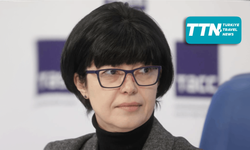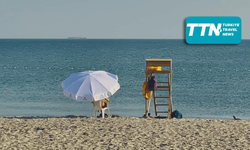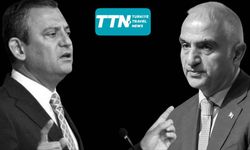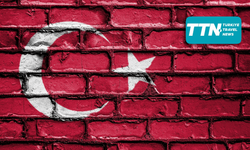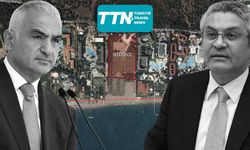The Turkish tourism sector faces the risk of losing its competitive edge because of high costs and low exchange rates, making it difficult to secure contracts for 2025. Last year, the tourism sector increased prices by 20% in foreign currency terms, but now it is striving to balance maintaining price competitiveness with managing costs.
Speaking to Selenay Yağcı from Ekonomim, industry representatives noted that the disparity between inflation rates and exchange rate increases negatively impacts hoteliers. While cost increases have been reasonably reflected in other components of package tours, the pressure continues on the accommodation side, challenging facilities with weak competitiveness and cash flow issues.
"We believe recovery is ahead"
Burhan Sili, President of the Alanya Touristic Operators Association (ALTİD), highlighted that while inflation in the tourism sector remains high, exchange rates have not increased proportionately. This has led to ongoing challenges for hoteliers due to rising input costs. However, he expressed optimism for recovery in the near future.
Sili reminded that the main contracts for the next season, especially for Antalya, started in July. He emphasized that exchange rate and inflation-driven price pressure affects Turkish tourism. Sili pointed out that many factors influence new season accommodation prices, with exchange rate forecasts being the most critical. He also stressed the importance of considering the budgets of potential buyers in source markets and balancing inflation in these markets with Türkiye's cost increases.
"Price increases above market inflation are not feasible"
Sili noted that the Turkish tourism sector has experienced fluctuations since 2015. He explained that increasing hotel prices above the inflation rates in source markets could reduce demand for Türkiye. Therefore, it is crucial to strike a delicate balance. "We must sustain our business at certain levels, even at the expense of our profits," he said.
Kaan Kavaloğlu: "We need to increase prices by 10-15% for 2025"
Kaan Kavaloğlu, President of the Mediterranean Touristic Hoteliers and Operators Association (AKTOB), mentioned that during the pandemic, they kept prices low by being flexible. "We started raising prices in the 2023-2024 seasons, achieving a 15-20% increase in foreign currency terms. For 2025, we need to raise prices by 10-15% without disadvantaging consumers or losing our edge against competitors. The stable exchange rate is challenging for hoteliers. The current Euro-based prices do not cover our costs. We will need to raise prices a bit more," he said.
"Consumers look at inflation in their own country"
Mustafa Deliveli, President of the South Aegean Touristic Hoteliers Association (GETOB), stated that the widening gap between inflation and exchange rates narrows hoteliers' profit margins. "Over the past two years, we have implemented 15-20% increases in foreign currency terms, which were accepted given the circumstances. Now, we are at a disadvantage in negotiations. Economic balances in Europe are improving, and the UK has reported its lowest inflation in the last three months. Meanwhile, we face suppressed exchange rates and rising inflation. Costs have increased, and under these conditions, we need to implement another 15-20% increase. However, maintaining the same rate of increases for three years will weaken our competitiveness. It seems we will struggle. We are trying to explain our situation to tour operators. Sales may be impacted. Although our recent price increases are reasonable, holiday consumers do not see it that way. They compare with the inflation in their own country. I believe the contracts for 2025 will be completed quickly, even if there are some delays," he said.
"Euro rate should be 40-45 TL"
Sili explained that last year, they predicted the Euro rate to be between 38-42 TL while making contracts. "However, this year, the rate did not exceed 36 TL. If costs had not increased proportionately, it would not have been an issue. But we continue to face this problem. The Euro rate should not be below 40 TL. Our view is that the Euro should be 40-45 TL. We negotiate in Euros with countries, including Russia. We expect the rate to fluctuate in October-November. We need to look ahead. If the gap between inflation and exchange rates continues, the cards will be reshuffled, and possibly new concepts will emerge," he said.

